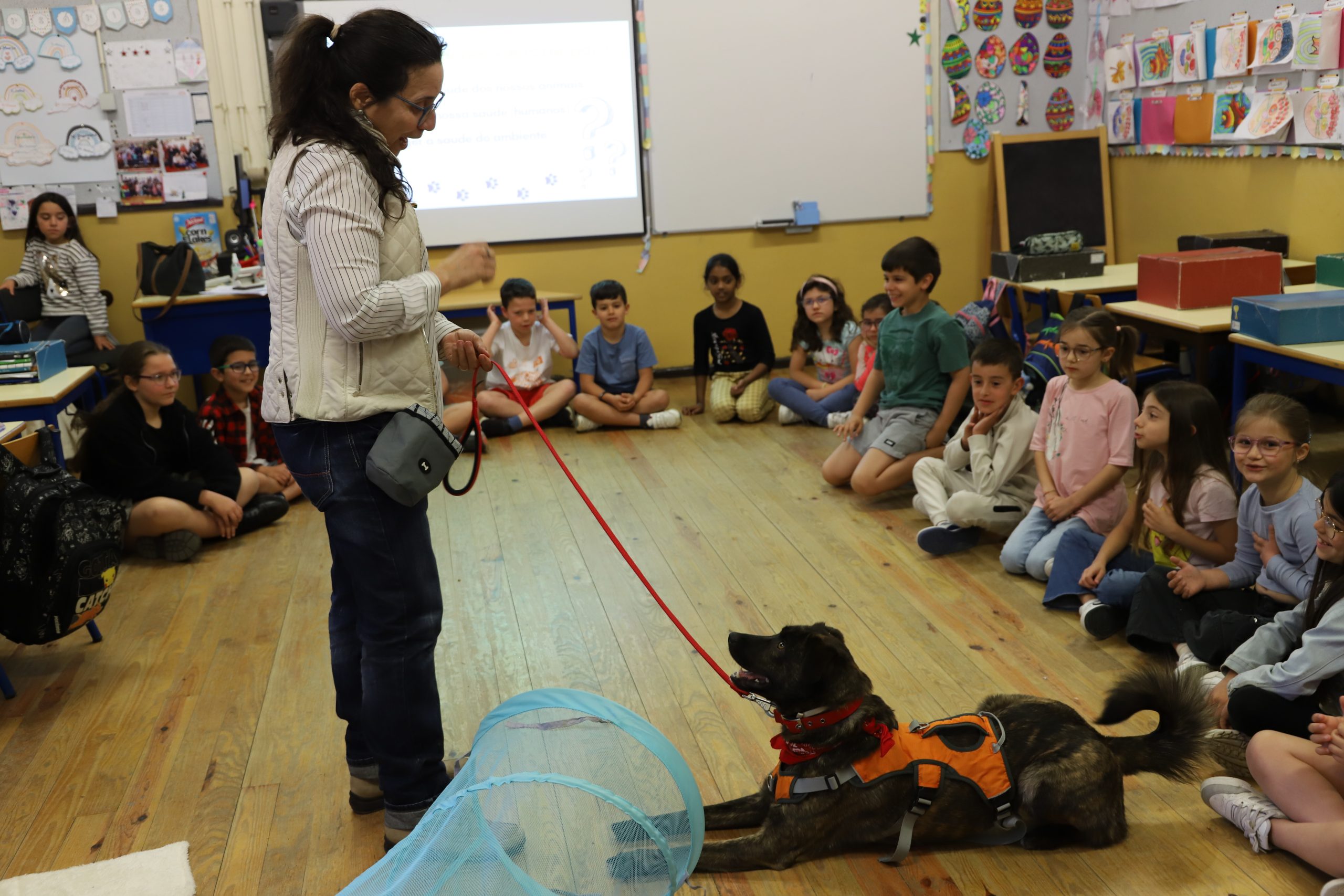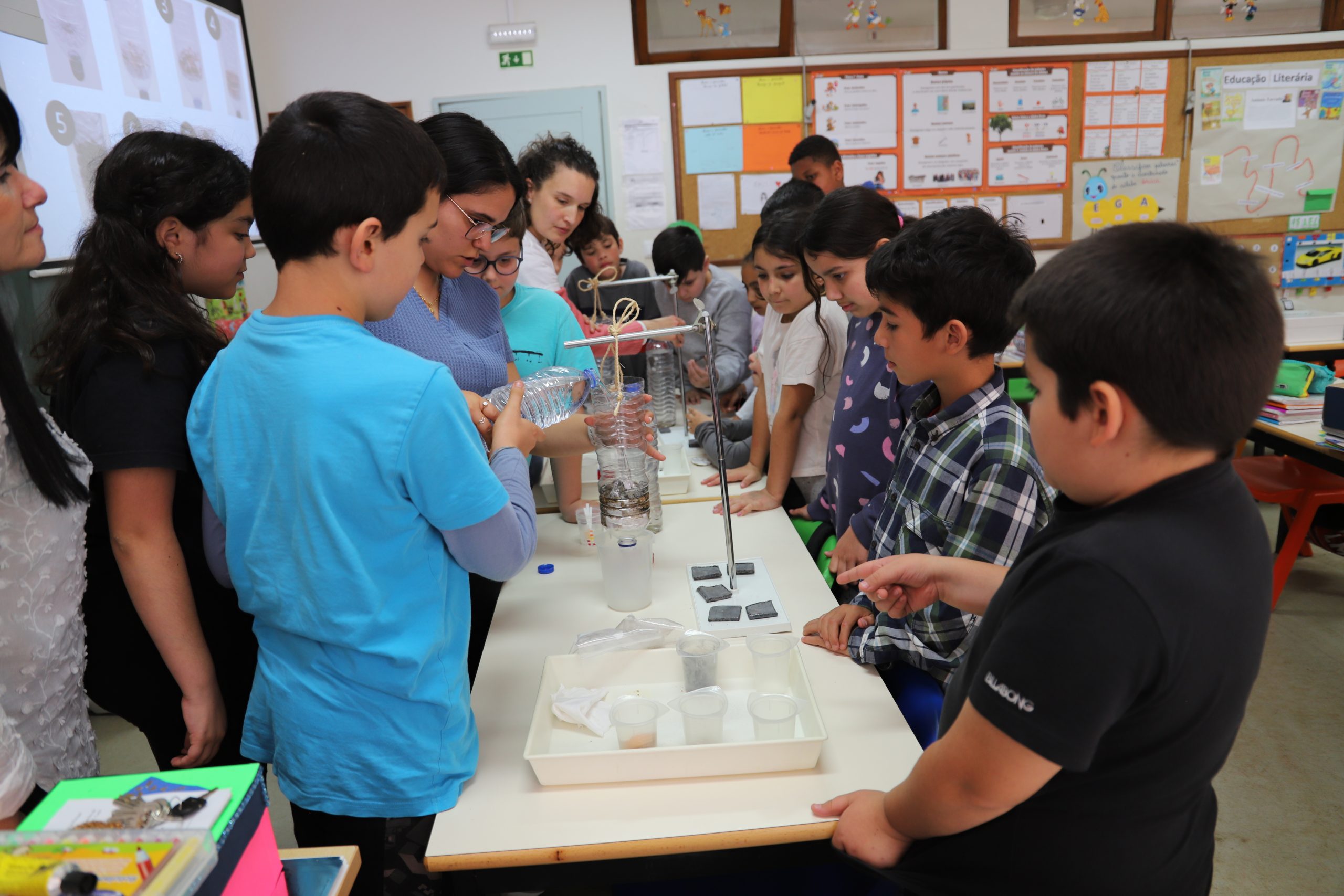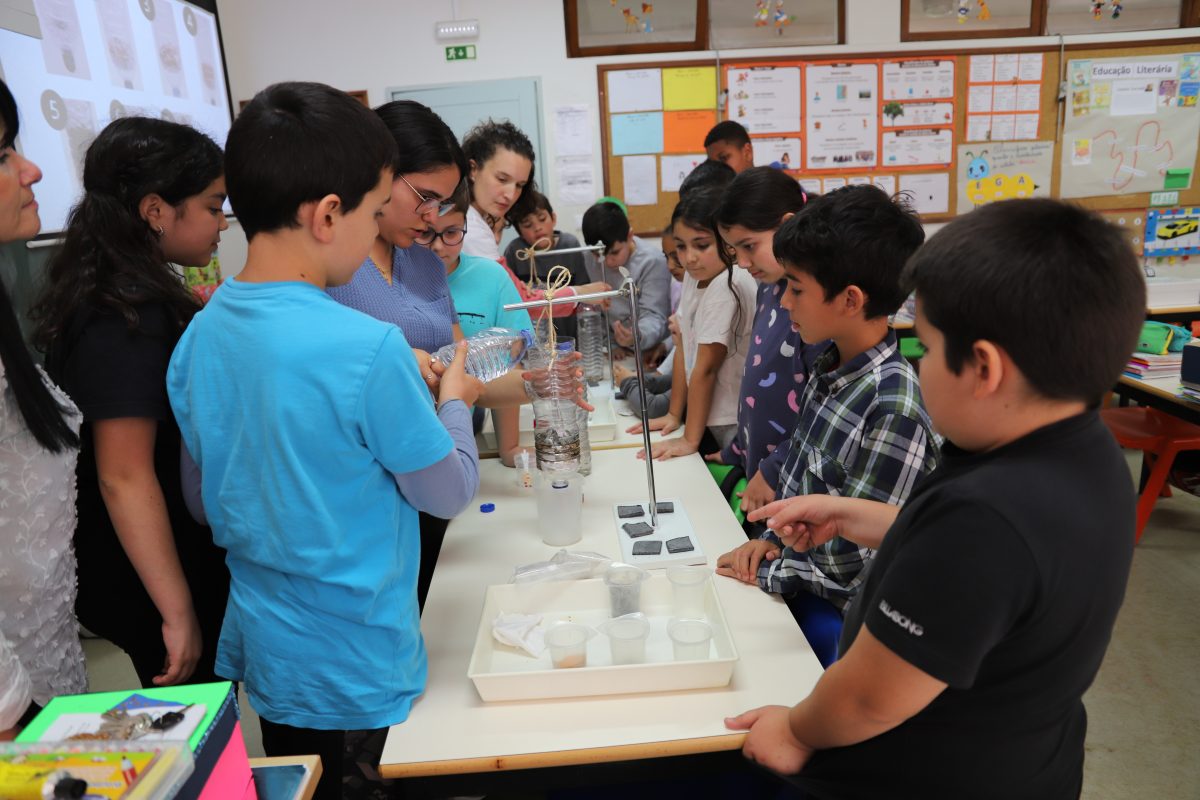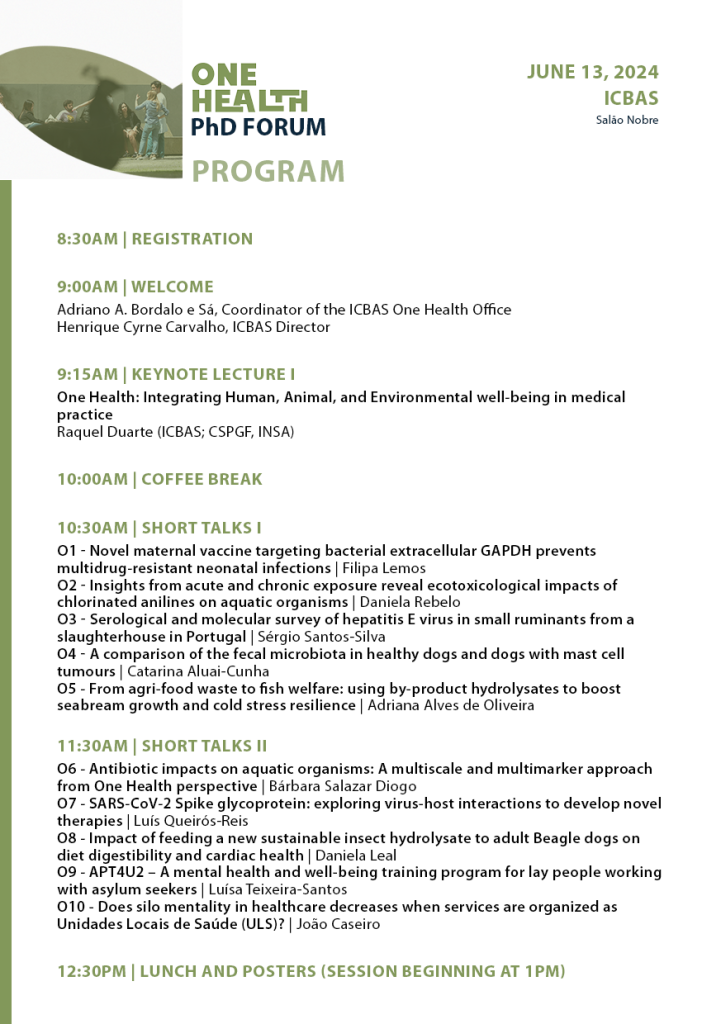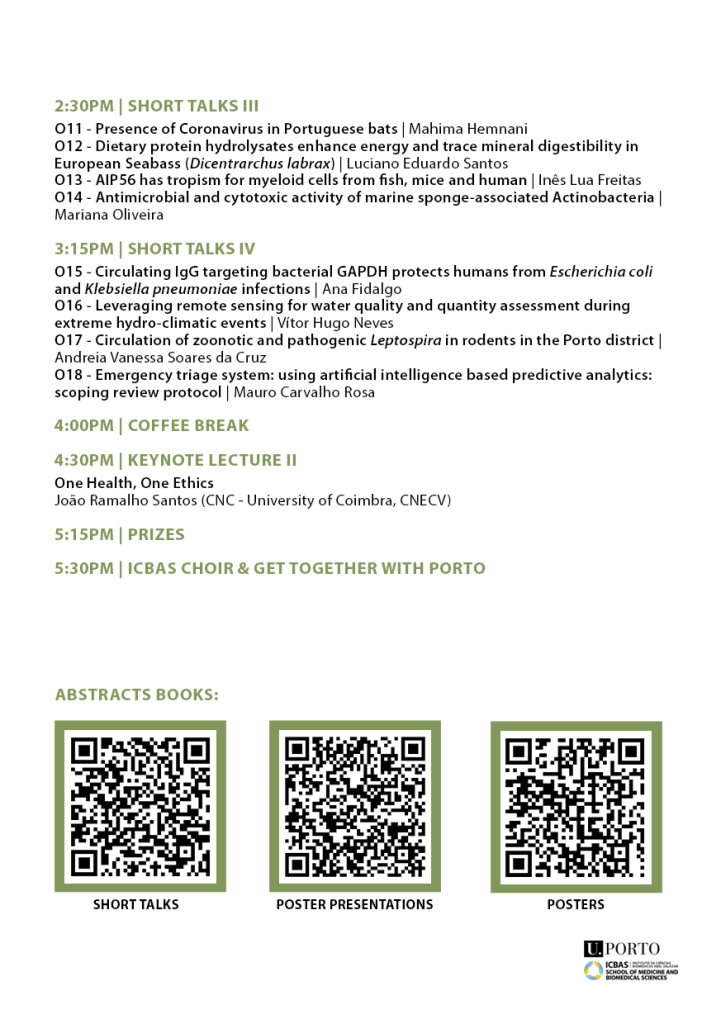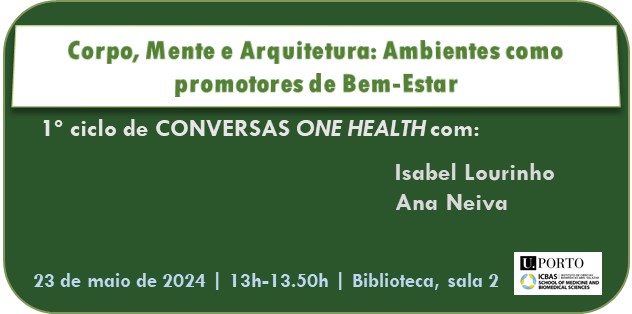Making children, teenagers, and young people aware that what we understand as Health also includes the health of animals, plants and the environment is the focus of the initiative "One Health in Schools". In April and May, the concept was presented in a simple and participatory way in two primary schools in the Greater Porto region. Two different challenges, chosen by each of them, were also launched, accompanied by a practical activity alluding to the topic."
The Escola do Marco, from Agrupamento de Escolas António Sérgio in Vila Nova de Gaia, chose the topic 'Pets - benefits and care'. The students were visited by Lola the dog and heard from her guardian, the veterinarian Luísa Guardão from ICBAS, about the importance of maintaining a healthy relationship with our animals. The Escola da Caramila, from Agrupamento Fontes Pereira de Melo in Porto, chose to work on the theme 'Water, a good for everyone? After an initial talk, and thanks to the participation of marine biologist Lúcia Gomes from the ICBAS Hydrobiology laboratory, they learned how to manually make a homemade filter from recycled materials to purify water and to identify various characteristics of this precious liquid.
But the activities won't stop there. In June, these children will come to ICBAS to present the solutions to the challenges. Families will also be able to watch and learn from the research carried out by the little ones at home.
From September, the 'One Health in Schools' will reach other levels of education, with a similar format, but adapted to the motivations and expectations of each stage.
